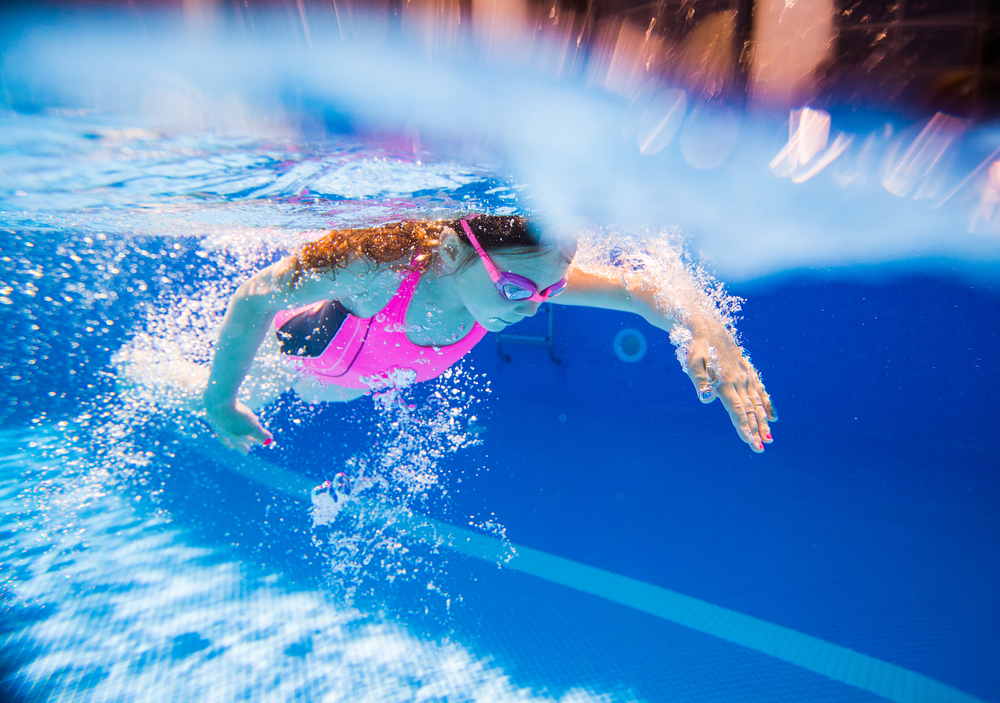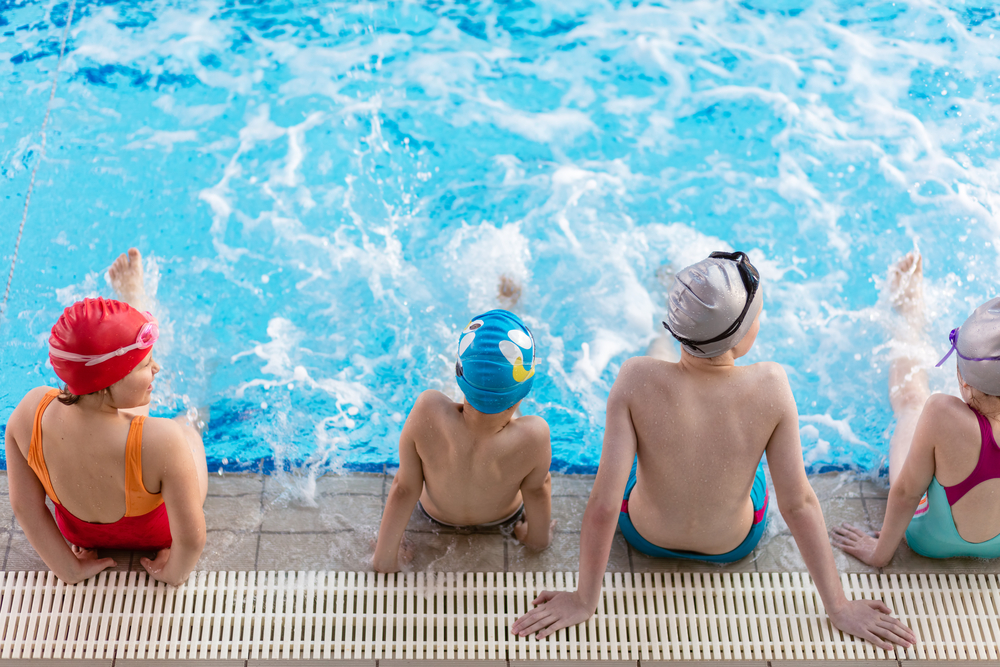Most parents aren’t aware that babies can learn to swim at a very young age. Babies are unlikely to learn to swim in the traditional sense, but they will gain preliminary abilities and valuable confidence in the water. Baby swim lessons are designed to help your baby acclimate to the water, assist them in learning to swim strokes, and teach them water safety and survival skills. Even a small baby can learn to hold the pool's edge or roll onto their back to float with repeated teaching.
Is Swimming Good for Babies?
Yes! There are a number of important benefits of swimming for babies, including physical development, confidence-building, and, of course, water safety. Babies learning to swim is essential, especially in New Zealand.
Because our country is full of stunning beaches and rushing rivers, there’s a high chance your child will be exposed to the water, especially if you live near a beach. One of the key benefits of baby swimming is that your child will learn early how to stay safe in the water and have fun doing it! Let’s take a look at some of the other baby swimming benefits.
Swimming lessons for babies can help with water safety
Being comfortable and confident in the water at an early age helps eliminate obstacles to future swimming sessions and ensure the safety of your child. While swimming is a fun recreation activity, water safety and drowning prevention are certainly major motivators for parents to enrol their babies in swimming lessons. However, please keep in mind that even though your babies are learning to swim, they will still always need to be monitored in the bathtub, pool, or any body of water
Baby swimming can help their development
While they’re still growing, swimming is good for babies! Because several important milestones in a child’s development are linked to fine motor skills when they’re young, it’s important to develop these skills as much as possible.
Swimming lessons help children improve their motor skills and muscle strength; the activities they undergo in swimming lessons will ultimately help them acquire breath control and build physical stamina. Baby swim lessons will assist them in mastering benchmarks that may appear minor but are the foundation for all future motor abilities.
Researchers in Norway and the United Kingdom discovered that babies who had baby swimming lessons did considerably better in prehension (holding and grabbing things) and static stability than babies who had never had a swim lesson.
Baby swim lessons can improve language
One of the most exciting baby swimming benefits is that it can actually help babies improve their language development. Your child’s first word could happen sooner than expected if they take swimming lessons—after all, the instruction provided throughout the lessons aids in the development of language.
Instructors frequently use phrases and cue words such as ‘1, 2, 3 Balloon Face’, ‘kick, kick kick’, and, ‘paddle paddle paddle’ which assist children in naturally absorbing important parts of speech and useful words such as cues, colours, and shapes. Simply hearing and observing these types of conversations throughout the course of a lesson can significantly improve language skills
Swim lessons for babies can help the development of social and emotional skills
Another of the fantastic benefits of swimming for babies is the development of your child’s social and emotional skills. That’s because swimming lessons are a great way for infants and young children to make new friends. They’re involved in a recreational activity and are surrounded by other children who are also having a good time in the pool.
As they explore friendships with peers, children learn valuable skills such as resolving conflict and sharing by immersing themselves in the social environment. They also learn to respect boundaries as they realise their actions do not take place in a vacuum but have an impact on others in the class. Infants who participate in group swim lessons become more social and extroverted as they learn to embrace socialising with others.

Your baby can become more confident and committed
As babies are learning to swim, they’re also learning to commit to an activity and to work hard when they participate in baby swim school (even as babies). They don't knowingly learn these skills, but by coming back once a week and teaming up with their parents or guardians, they adopt them. When babies learn to move through the water, they develop self-esteem and a sense of confidence
Baby swim lessons are great one-on-one bonding time
Baby swimming lessons are an excellent one-on-one bonding opportunity for parents and babies. Swim lessons are taught in a group setting, which allows babies to connect with teachers, other babies, and parents while also improving their social skills and adaptability skills. Swimming lessons for babies are usually taught with a parent (or two) in the water with the baby.
Swimming lessons give your baby a good sleep cycle
Handling erratic sleeping patterns of a baby is one of the most daunting challenges of parenthood. One of the reasons parents appreciate enrolling their baby in swim lessons is the longer and deeper sleep that generally follows a pool session. Swimming on a regular basis helps to create good sleep cycles for babies. Even if the lesson appears to be relaxed and calming, babies are active throughout the session.
Learning to swim helps prevent fear of water
One of the most prevalent concerns that parents of older children have when their children begin swimming lessons is their fear of the water. Most children don’t develop an instinctive fear of water until they are about two years old. Enrolling your child in infant swimming lessons before this age bypasses the transition that causes them to develop a phobia of water. When children are afraid of the water, swimming lessons are much more difficult, so it's best to start before they develop this phobia. Ensure you are as relaxed as possible when you partake in lessons to ensure your fear is not passed through to them.

Baby Swimming Lessons at Fulton Swim School
At Fulton Swim School, we offer infant swimming programmes that evolve with your baby's needs. We take a gentle approach to baby swimming and place a major emphasis on parent-child connection in our lessons to ensure that each participant makes the most progress possible.
Baby swim lessons are taught in a nurturing way by our Swimming New Zealand accredited instructors. As a result, your baby is considerably more likely to love swimming lessons through us. We have swim lessons for babies aged 3 to 14 months and class size is limited to eight children.
All of our pools are kept at a constant temperature of 32 degrees, ensuring that both babies and adults are kept warm and comfortable at all times. Moreover, we do not use harmful chemicals, giving parents and swimmers peace of mind.
To learn more about the infant swimming lessons we offer, take a look at our Baby Swimming Lessons service page. There, you’ll find everything you need to know about what to expect and how to prepare for your baby’s first swimming lesson.
If you’d like to sign up straight away to make the most of the benefits of baby swimming, simply get in touch with us today!
